Becoming a parent feels like getting handed the world’s most precious package without an instruction manual. While babies don’t actually come with a user guide those first-time parent jitters can transform anyone into a sleep-deprived encyclopedia seeker.
Thankfully modern parenting books offer more than just bland advice about feeding schedules and diaper changes. Today’s guides tackle everything from sleep training to emotional intelligence while keeping it real about the messy beautiful journey of parenthood. The best part? These books don’t judge – they’re like having a wise friend who’s been there done that and lived to tell the tale.
Table of Contents
ToggleWhy New Parents Need Parenting Books
Parenting books provide evidence-based guidance through developmental milestones during a child’s first years. Research shows that 83% of first-time parents experience significant stress navigating basic childcare tasks like feeding schedules sleep routines.
| New Parent Challenges | Percentage Affected |
|---|---|
| Sleep-related concerns | 83% |
| Feeding difficulties | 76% |
| Developmental uncertainty | 68% |
| Behavior management | 71% |
Expert-authored parenting books offer:
- Research-backed strategies for establishing healthy sleep patterns
- Age-appropriate feeding guidelines from pediatric nutritionists
- Developmental milestone checklists based on medical standards
- Proven methods for managing common behavioral challenges
Reliable parenting books bridge critical knowledge gaps by:
- Translating complex medical information into actionable steps
- Providing structured routines tested by child development experts
- Explaining typical infant behaviors medical reasons
- Offering solutions for common parenting challenges backed by research
Modern parenting resources address contemporary challenges through:
- Digital-age parenting techniques for screen time management
- Work-life integration strategies for dual-income households
- Cultural sensitivity approaches for diverse family structures
- Environmental consciousness in baby products choices
Parenting books create a foundation of knowledge that helps parents:
- Recognize normal developmental patterns
- Identify potential health concerns early
- Make informed decisions about childcare options
- Implement consistent disciplinary approaches
- Navigate relationships with healthcare providers
This structured guidance empowers parents to make informed decisions while building confidence in their parenting abilities.
Types of Parenting Books for New Parents
Parenting books address specific aspects of child-rearing through specialized categories. Each category focuses on distinct developmental areas providing targeted guidance for new parents.
Development and Milestones Books
Development guides track physical cognitive emotional milestones from birth through early childhood. These resources include monthly growth charts age-specific developmental checklists brain development phases motor skill progressions. Experts like Dr. T. Berry Brazelton’s “Touchpoints” series documents typical progression patterns while identifying red flags for developmental delays. Many development books feature:
- Monthly milestone trackers with photo references
- Brain development stages at 3-month intervals
- Fine motor skill activities by age group
- Language acquisition timelines
- Social emotional growth indicators
Sleep Training Guides
Sleep training books present methodologies for establishing healthy sleep patterns. Leading sleep experts like Dr. Richard Ferber Marc Weissbluth offer evidence-based techniques for creating consistent bedtime routines. These guides include:
- Age-appropriate sleep schedules
- Step-by-step settling techniques
- Nap transition strategies
- Common sleep regression phases
- Troubleshooting guides for sleep issues
Feeding and Nutrition Resources
- Breastfeeding latching techniques
- Formula preparation safety standards
- Monthly feeding schedules
- First food introduction timelines
- Portion size guides by age
- Common allergen introduction protocols
| Age Range | Daily Feedings | Portion Sizes |
|---|---|---|
| 0-3 months | 8-12 times | 2-3 oz |
| 4-6 months | 6-8 times | 4-6 oz |
| 7-9 months | 4-6 times | 6-8 oz |
Best Evidence-Based Parenting Books
Evidence-based parenting books combine scientific research with practical applications to guide parents through child-rearing challenges. These resources translate complex studies into actionable strategies for daily parenting situations.
Science-Backed Approaches
Evidence-based parenting literature draws from multiple scientific disciplines including developmental psychology pediatrics neuroscience. Research findings from longitudinal studies demonstrate effective methods for child development milestones sleep training behavioral management. Clinical data supports specific parenting techniques such as positive reinforcement consistent boundaries responsive feeding practices.
Key scientific principles in modern parenting books include:
- Attachment theory applications for emotional bonding
- Cognitive development frameworks for age-appropriate learning
- Behavioral psychology techniques for positive discipline
- Neuroscience insights for brain development stages
- Statistical analyses of successful parenting outcomes
Expert-Recommended Titles
Leading pediatricians child psychologists researchers recommend these evidence-based titles:
| Book Title | Author | Key Focus Area |
|---|---|---|
| Cribsheet | Emily Oster | Data-driven parenting decisions |
| The Whole-Brain Child | Daniel Siegel | Neurobiological development |
| Brain Rules for Baby | John Medina | Cognitive development |
| The Science of Mom | Alice Callahan | Research-based infant care |
| What’s Going on in There? | Lise Eliot | Brain development stages |
- Peer-reviewed research citations
- Clinical study results
- Statistical evidence
- Expert contributor insights
- Updated scientific findings
Popular Parenting Styles and Their Books
Parenting styles shape how adults interact with children through discipline approaches emotional connections. Each style comes with distinct philosophies supported by specialized literature from leading experts.
Attachment Parenting Resources
Attachment parenting focuses on developing strong emotional bonds through physical closeness responsive caregiving. “The Attachment Parenting Book” by William Sears MD outlines eight principles including babywearing breastfeeding bedsharing. “The Continuum Concept” by Jean Liedloff explores indigenous parenting practices that promote secure attachment. Dr. Gordon Neufeld’s “Hold On to Your Kids” examines parent-child attachment in modern society addressing peer orientation challenges. These resources provide practical guidance for skin-to-skin contact baby-led feeding cue reading techniques.
Positive Discipline Guides
Positive discipline emphasizes mutual respect teaching life skills through kindness firmness. “How to Talk So Kids Will Listen & Listen So Kids Will Talk” by Faber Mazlish presents communication techniques for conflict resolution. Jane Nelsen’s “Positive Discipline” series offers tools for encouraging cooperation without punishment rewards. “The Gentle Parent” by L.R. Knost demonstrates methods for setting boundaries while maintaining emotional connections. These books include role-playing scenarios problem-solving strategies age-appropriate expectations charts.
| Popular Attachment Books | Key Focus Areas |
|---|---|
| The Attachment Parenting Book | 8 Principles of AP |
| The Continuum Concept | Natural Parenting |
| Hold On to Your Kids | Parent-Child Bonds |
| Positive Discipline | Non-Punitive Methods |
| How to Talk So Kids Will Listen | Communication Skills |
How to Choose the Right Parenting Book
Selecting an appropriate parenting book starts with identifying specific parenting concerns such as sleep training infant development or behavioral management.
Consider these essential factors when selecting a parenting book:
- Author Credentials: Look for books written by pediatricians child psychologists or experienced childcare professionals with relevant academic qualifications
- Publication Date: Select books published within the past 5 years to ensure current medical guidelines developmental research
- Scientific Backing: Check for citations peer reviewed research references to academic studies
- Writing Style: Pick books with clear actionable advice organized chapters practical examples
- Parenting Philosophy: Match the book’s approach with personal values whether attachment parenting positive discipline or other methods
- Age Relevance: Choose books targeting your child’s specific age group from newborn to toddler stages
- Cultural Sensitivity: Find books acknowledging diverse family structures cultural practices modern parenting dynamics
Review these key indicators of quality parenting books:
| Quality Indicator | Specific Requirements |
|---|---|
| Expert Reviews | Endorsed by pediatric associations or child development institutes |
| Content Structure | Contains indexes checklists reference guides |
| Supporting Materials | Offers digital resources worksheets online communities |
| Regular Updates | Features revised editions with current recommendations |
Focus on books addressing particular challenges:
- Sleep Training: Books featuring multiple methods sleep schedules troubleshooting guides
- Feeding Guidelines: Resources covering breastfeeding formula feeding solid food transitions
- Development Tracking: Guides with milestone charts growth indicators behavioral benchmarks
- Behavior Management: Books offering practical solutions common challenges age appropriate strategies
Evaluate reader feedback through verified purchase reviews professional critiques parenting forum discussions. Cross reference recommendations from pediatricians childcare providers experienced parents.
Conclusion
Parenting books remain invaluable guides for new parents navigating the challenges of raising children. From sleep training to developmental milestones these resources provide research-backed strategies that help build confidence and competence in parenting skills.
The right parenting book can transform uncertainty into understanding by offering practical solutions backed by scientific research. Whether parents need guidance on attachment parenting positive discipline or evidence-based approaches they’ll find specialized resources to support their journey.
Ultimately choosing the right parenting book depends on individual needs parenting style and specific challenges. When armed with quality information from trusted experts new parents can approach their role with greater confidence and create a nurturing environment for their child’s growth and development.




